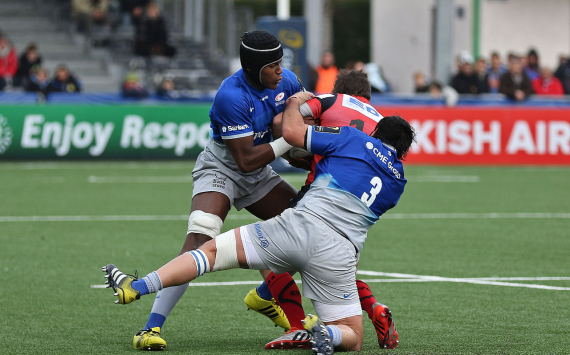
Maro Itoje Takes a Stand
In a bold move, England rugby sensation Maro Itoje has declared that he will no longer sing the iconic anthem 'Swing Low, Sweet Chariot' after uncovering its complex origins.
For years, this melody has been synonymous with England rugby fans, echoing through the stands of Twickenham. However, Itoje, who has been an integral part of the England squad since his debut in 2016, recently expressed his decision to distance himself from the song.
Born in London to Nigerian parents, Itoje had previously acknowledged the anthem's intricate history. But last summer, he reinforced his stance, admitting his own naivety in ever singing it.
In an interview with French publication L'Equipe, Itoje explained his position, saying, "I won't dictate what others should or shouldn't do, but personally, I won't sing this song anymore. I sang it before, when I was naive and unaware of its origins. However, knowing the historical context of 'Swing Low, Sweet Chariot,' it's not a anthem I can continue to embrace."
The song, originally composed by Wallis Willis, an African American slave in the 1800s, gained recognition at Twickenham in 1987 as a tribute to Martin Offiah. Its popularity soared further when black player Chris Oti scored a hat-trick against Ireland the following year.
Itoje highlighted the song's original purpose, which was to empower African American individuals, fostering strength and hope. "What troubles me is its adoption during the performance for Martin Offiah and Chris Oti, both black players at Twickenham Stadium."
Notably, several sports authorities, including the RFU, reviewed the song's historical connotations in 2020 but opted not to ban it, believing that most fans were unaware of its origins.
Itoje, beyond his rugby career, has embraced a role as an activist and public campaigner. He staunchly supported the Black Lives Matter movement, stating, "Rugby has given me so much, and I am grateful. But it has also given me a platform to champion the causes close to my heart."
Itoje has played pivotal roles in England's Rugby World Cup wins and helped the team reach the final in Japan four years ago. However, this time around, expectations have diminished due to a lackluster build-up to the tournament. Itoje recently disclosed that his own performance suffered due to an "underlying health condition" back in March.










